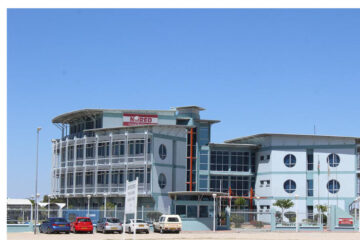Martin Endjala
Prime Minister Saara Kuugongelwa-Amadhila confirmed that a large number of health workers are leaving the county for greener pastures because of low salaries.
She said this on Monday, during the Africa Health Workforce Investment Forum that is currently underway in Windhoek.
“The remuneration packages in many public health services cannot compete with those in the private sector. As a result, public health care services bleed heavily as professionals depart for perceived greener pastures. On top of that, the perceived greener pastures are not at home; they are found thousands of miles away on other continents,” she said.
Statistics show that Africa currently has just 4% of the global health workforce and 23% of the disease burden.
The Prime Minister said the exodus of health workers has resulted in a lack of experienced professionals to train younger cadres entering the different health disciplines.
She claims that numerous challenges, such as long working hours that cause burnout, confront health workers across the continent.
According to Kuugongelwa-Amadhila, the brain drain has not only devastated Namibia’s public health systems but also that of many other African nations.
Given these realities, she stated that investments in the African health workforce should aim to address specific and contextual African challenges.
“Skilled and capable healthcare professionals will make or break healthcare service delivery on this continent. Investments in Africa’s health workforce must aim to engender a sense and ethos of service and compassion. It is now more common than not to encounter patients who have experienced inadequate services at the hands of some health care workers,” she said.
She added that there is a need to promote greater motivation and a sense of duty in healthcare workers.
Kuugongelwa-Amadhila added that many health facilities are old and have degrading service quality.
The Prime Minister stated that investment in the health workforce must alter this balance.
She revealed that Namibia is one of Africa’s countries with a relatively high density of health workers. There are an estimated 5.43 medical doctors and 33.52 nurses per 10,000 people in Namibia.
However, she stated that the vast geography and low population density negatively affect service delivery dynamics.
Minister of Health and Social Service, Dr Kalumbi Shangula, indicated that the shortage of trained, skilled health workers is due to limited resources, stressing the need for multifaceted efforts.
He announced that, in accordance with National Development Plan Five, the ministry has commissioned a sustainable health labour analysis of the workforce. He said this will ensure that Namibia achieves a quality, equitable workforce by 2030.
Meanwhile, the director general of the Centre for Disease Control, Jean Kaseya, says achieving universal health coverage by 2030 will require an additional 1.8 million in health workers in Africa alone.
“The critical shortage of the health workforce in Africa is projected to reach about 6.1 million by 2030. This will be made worse by the recurrent public health emergencies that we face daily. In 2023 alone, Africa recorded 166 disease outbreaks, and the trend I see in 2024 is not promising,” he said.
The World Health Organisation African regional director, Matshidiso Moeti, said strategic efforts are required to stimulate the African health workforce.
“Health workers must be empowered at all times to be ready to act in the fight against outbreaks of diseases and render service to patients,” said Moeti.
She said that in some African countries, health efficiency has improved by 13% in the past five years. Moeti revealed that 82% of the health workforce are young people who opt to work elsewhere due to a lack of job opportunities.
Moeti stated that 77% of the health workforce failed their training, emphasizing that countries must transform their systems to absorb health workers and provide decent employment.




